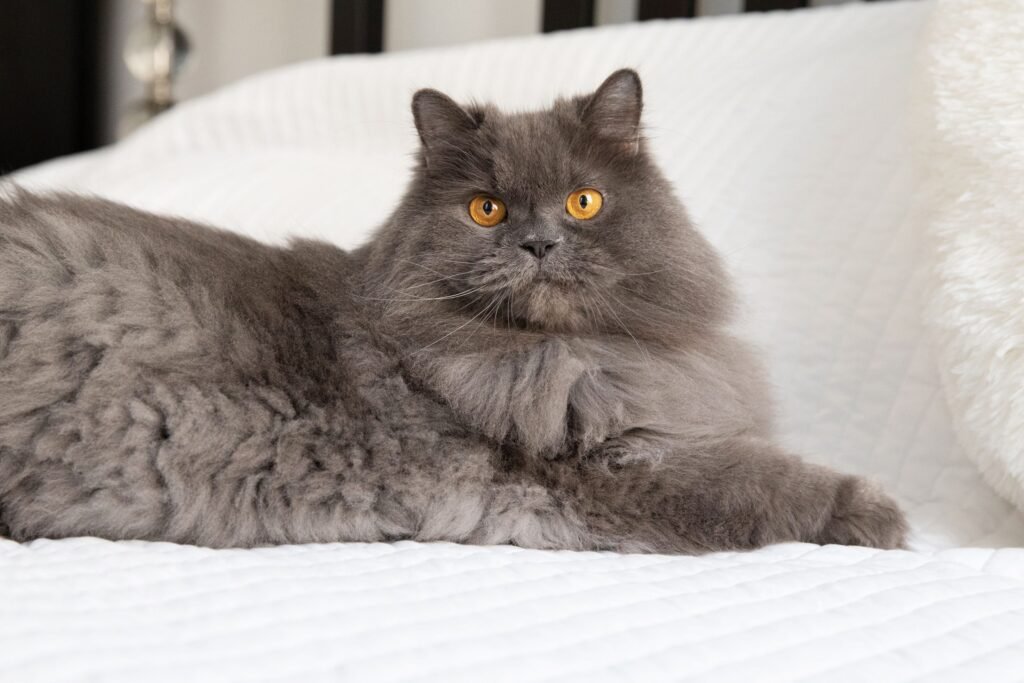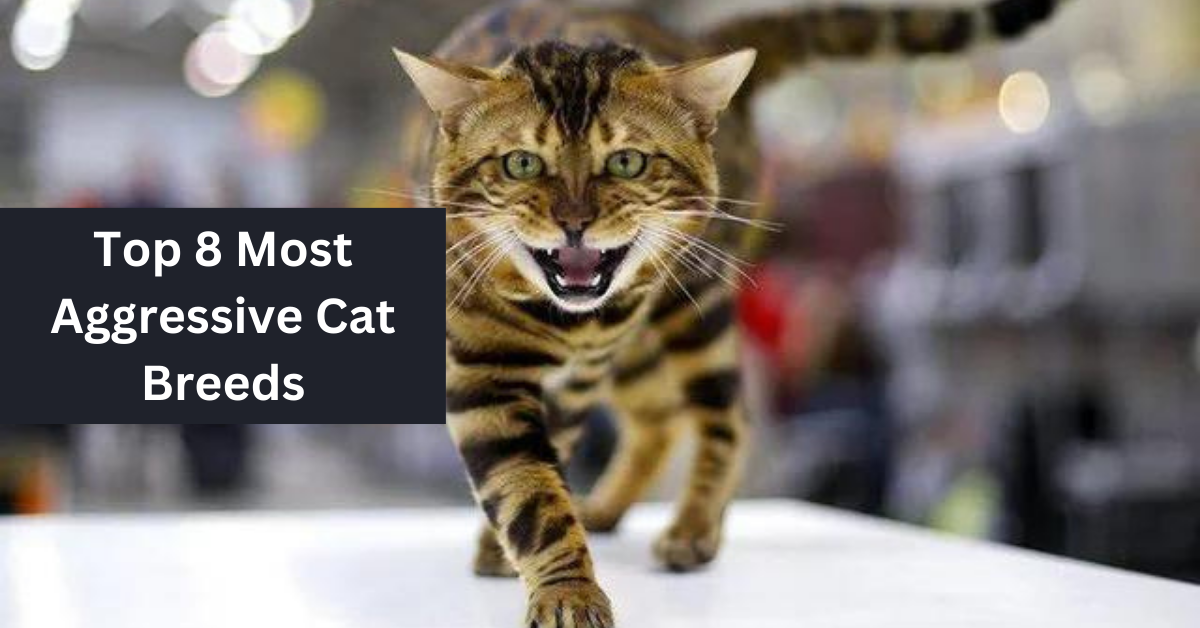Top 8 Most Aggressive Cat Breeds:- Cats are frequently loved for their impartial and aloof nature, however some breeds stand out for his or her assertive and every so often aggressive behavior. If you are thinking about adding a tom cat companion to your household and preference a more spirited partner, it is critical to recognize the temperaments of different cat breeds. Here, we delve into the pinnacle 8 maximum aggressive cat breeds, losing mild on their traits, temperament, and suitability as pets.
What Makes a Cat Aggressive?
Before diving into particular breeds, it is vital to recognize what elements contribute to a cat’s aggression. While genetics play a extensive role, environmental factors consisting of upbringing, socialization, and beyond experiences additionally have an impact on a cat’s temperament. Understanding those factors can assist proprietors better manage and mitigate competitive behaviors of their pets.
1: Bengal Cats: Wild Spirit in Domestic Form

Bengal cats are recognized for their hanging resemblance to their wild ancestors, the Asian Leopard Cat. Their lively nature and robust looking instincts can every so often translate into aggressive behavior, specially if they’re not thoroughly inspired or engaged.
2: Siamese Cats: Vocal and Assertive Personalities

Siamese cats are renowned for their vocalizations and sturdy personalities. While they’re affectionate and dependable partners, their assertiveness can every so often appear as aggression, mainly toward different animals or unexpected humans.
3: Scottish Folds: Gentle Appearance, Feisty Nature

Despite their adorable folded ears and candy demeanor, Scottish Folds can show off sudden aggression, especially if they feel threatened or stressed. Proper socialization and enrichment are vital for making sure a well-balanced temperament in this breed.
4: Sphynx Cats: Playful, Curious, and Occasionally Aggressive

Sphynx cats are well-known for his or her hairless appearance and inquisitive nature. While they may be typically affectionate and playful, they can show aggressive behaviors in the event that they get bored or sense not noted.
5: Maine Coons: Gentle Giants with a Stubborn Streak

Maine Coons are certainly one of the largest domestic cat breeds, regarded for their mild demeanor and affectionate nature. However, they can be territorial and assertive, specially closer to other cats or animals encroaching on their space.
6: Persian Cats: Calm and Regal, Yet Prone to Aggression

Persian cats are loved for their steeply-priced coats and calm disposition. However, they could showcase aggression, mainly if they feel threatened or intimidated. Early socialization and positive reinforcement training are critical for coping with their temperament.
7: American Shorthairs: Independent Hunters with a Fiery Side

American Shorthairs are prized for his or her hunting prowess and independent nature. While they’re typically laid-again and easygoing, they are able to display aggression if they experience provoked or cornered.
8: Russian Blues: Reserved Demeanor with Occasional Aggression

Russian Blues are recognized for his or her fashionable appearance and reserved demeanor. While they’re generally affectionate in the direction of their owners, they will display aggression toward strangers or other animals invading their territory.
Conclusion
While aggression isn’t always uncommon amongst positive cat breeds, it is vital to remember that person personalities vary widely inside every breed. Proper socialization, schooling, and know-how of pussycat behavior are key to fostering a harmonious relationship together with your feline associate.
FAQs
1. Are competitive cat breeds appropriate for families with children?
While some competitive cat breeds can coexist peacefully with kids, it is crucial to oversee interactions and teach kids how to appreciate the cat’s obstacles.
2. Can aggressive behavior in cats gain knowledge of out?
With endurance, consistency, and high quality reinforcement education, many cats can learn how to manage their competitive inclinations.
3. What must I do if my cat shows aggressive conduct?
Consult with a veterinarian or animal behaviorist to rule out any underlying scientific issues and develop a conduct amendment plan tailored in your cat’s wishes.
4. Are there unique triggers that can provoke aggression in cats?
Common triggers encompass worry, pressure, territorial disputes, and feeling threatened or cornered.
5. Can competitive cat breeds be top pets with the proper schooling and socialization?
Yes, with proper care, schooling, and socialization, even the most aggressive cat breeds could make loving and dependable companions.
